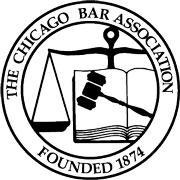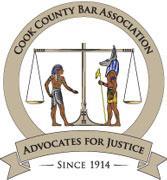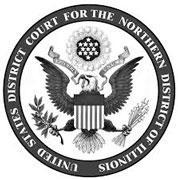Recent Blog Posts
How Can You Prove a Police Officer Caused You Harm?
 When a police officer abuses their power and causes harm to an individual, it is vital to hold them accountable for their actions. You should never feel that you cannot move forward and take action against a crime like this. An Illinois lawyer can help you with the steps you can take to prove that a police officer caused you harm and protect your rights.
When a police officer abuses their power and causes harm to an individual, it is vital to hold them accountable for their actions. You should never feel that you cannot move forward and take action against a crime like this. An Illinois lawyer can help you with the steps you can take to prove that a police officer caused you harm and protect your rights.
Document the Incident
One of the most critical steps in proving police misconduct is to document the incident as thoroughly as possible. If you have been harmed by a police officer, take the following actions:
-
Write down the date, time, and location of the incident.
-
Record the officer’s name, badge number, and physical description.
-
Take photos of any visible injuries or property damage.
Best Tips to Prove Your Slip-and-Fall Accident
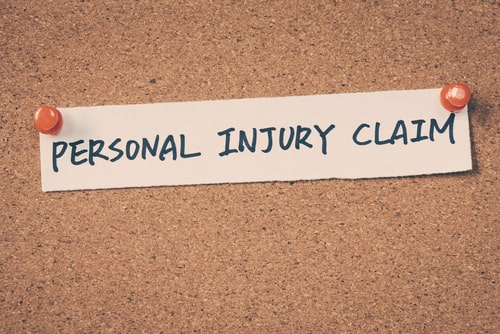 You may be entitled to compensation if you were hurt on someone else’s property because of their negligence. However, proving fault in a slip-and-fall case can be challenging. An Illinois lawyer can provide some of the best tips to strengthen your claim.
You may be entitled to compensation if you were hurt on someone else’s property because of their negligence. However, proving fault in a slip-and-fall case can be challenging. An Illinois lawyer can provide some of the best tips to strengthen your claim.
Seek Immediate Medical Attention Before Anything
Prioritizing your health is crucial after experiencing a slip and fall. It is important to seek immediate medical attention at an emergency room, urgent care, or from your primary physician, even if the injuries seem minor. Having official medical documentation creates an important record linking your injuries to the accident. Follow through with any prescribed treatment plans, referrals to specialists, or recommended diagnostic testing. Failing to get prompt treatment could hurt your claim later.
Report the Incident After You Seek Care
As soon as possible after the slip and fall, report it formally to the property owner, manager, or another authorized employee of the premises where you fell. Ask them to fill out an incident report with all the details of what happened, where it occurred, descriptions of any hazardous conditions that caused the fall, and information about any witnesses. Request a copy of the completed incident report. Do not sign anything until you have carefully reviewed it to ensure all the facts are accurate.
Legality of Public Transportation Injuries in Illinois
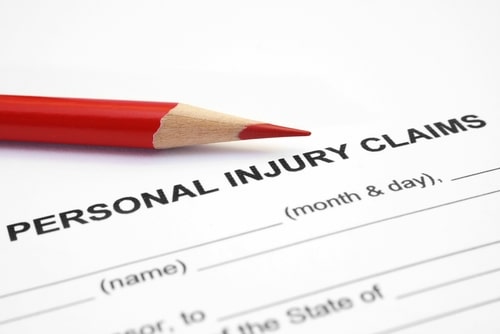 Accidents involving public transportation like buses, trains, and taxis are unfortunately all too common in Illinois. If you have been injured because of the negligence of a public transit operator, you may be entitled to compensation. An Illinois lawyer can help you determine what you need to know about your rights.
Accidents involving public transportation like buses, trains, and taxis are unfortunately all too common in Illinois. If you have been injured because of the negligence of a public transit operator, you may be entitled to compensation. An Illinois lawyer can help you determine what you need to know about your rights.
Common Public Transit Injuries
Public transit passengers can suffer a wide range of injuries, from minor bumps and bruises to catastrophic injuries like spinal cord trauma. Some of the most common public transit injuries include:
- Slip and fall injuries from wet floors or debris
- Whiplash and other injuries from sudden stops or starts or collisions
- Broken bones from falls while entering or exiting vehicles
- Head and brain injuries from falling luggage or impact
- Back and neck injuries from lack of headrests or improper equipment
Examples of Financial Exploitation in Nursing Home Abuse
 Nursing home abuse is a distressing reality that affects vulnerable individuals who rely on the care and support of these facilities. While physical and emotional abuse is more commonly discussed, financial exploitation is a lesser-known but equally significant form of nursing home abuse. If your loved one lives in a nursing home and you believe they may be the target of financial exploitation, contact an attorney in Illinois to get help right away
Nursing home abuse is a distressing reality that affects vulnerable individuals who rely on the care and support of these facilities. While physical and emotional abuse is more commonly discussed, financial exploitation is a lesser-known but equally significant form of nursing home abuse. If your loved one lives in a nursing home and you believe they may be the target of financial exploitation, contact an attorney in Illinois to get help right away
Forms of Financial Exploitation You Need to Be Aware Of
-
Unauthorized use of resident funds – One common example of financial exploitation is when nursing home staff or caregivers misuse a resident’s funds without proper authorization. This can include stealing cash, forging check signatures, or using credit cards without consent. Such actions not only violate the trust placed in caregivers but also deplete the resident’s financial resources, leaving them vulnerable and financially compromised.
Do Not Make These Mistakes in a Nursing Home Abuse Case
 Suppose you recently discovered that your parent is being abused in a nursing home. It is among the most devastating situations a person can find themselves in. In that case, hiring a lawyer in Illinois and taking legal action against the responsible parties is crucial to protect your loved one and seek justice. However, navigating the legal process carefully is essential to avoid common mistakes that could potentially harm your case. Here are some critical mistakes to avoid in a nursing home abuse case.
Suppose you recently discovered that your parent is being abused in a nursing home. It is among the most devastating situations a person can find themselves in. In that case, hiring a lawyer in Illinois and taking legal action against the responsible parties is crucial to protect your loved one and seek justice. However, navigating the legal process carefully is essential to avoid common mistakes that could potentially harm your case. Here are some critical mistakes to avoid in a nursing home abuse case.
Mistake #1 – Delaying Action
Time is a precious commodity in nursing home abuse cases. It is important to take immediate action upon discovering the abuse. Document the evidence of the abuse, report the abuse to the necessary authorities, and consult with a lawyer as soon as possible. Delaying action can weaken the case and allow the abuse to continue.
Are Bedsores a Sign of Potential Nursing Home Neglect?
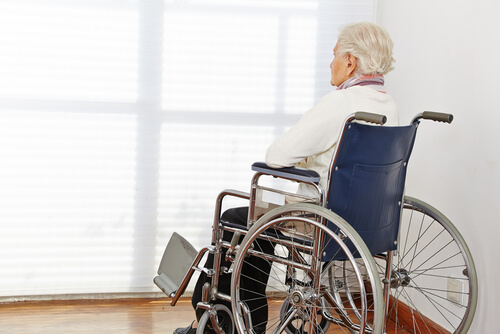
Bedsores, also known as pressure ulcers, are a painful and potentially life-threatening condition that can occur when a person remains in the same position for extended periods. While bedsores can occur for various reasons, their presence in nursing home residents often raises concerns about potential abuse and neglect. If your loved one is suffering from bedsores in their nursing home, it may be worth contacting a lawyer in Illinois. Contact one today to protect your loved one’s rights
Understanding Bedsores
Bedsores are skin injuries that occur due to prolonged pressure on specific body areas, typically over bony regions like hips, heels, and tailbone. They can develop when a person is immobile or confined to a bed or wheelchair for extended periods of time without proper repositioning, hygiene, or adequate medical care. Bedsores can range from mild, superficial wounds to severe, deep tissue damage that exposes underlying muscles and bones. If left untreated, they can lead to severe complications, including infections, sepsis, and even death
Protecting Patients’ Rights through the Nursing Home Care Act
 In Illinois, the Nursing Home Care Act (NHCA) is a crucial piece of legislation designed to protect the rights and well-being of residents in nursing homes and long-term care facilities. Suppose you have a loved one residing in an Illinois nursing home. In that case, it is worth understanding what the act entails, especially if you believe your loved one has had their rights violated while living in a nursing home facility. If you have a concern pertaining to a loved one, contact a lawyer today and get on the fast track to ensuring your loved one’s rights are known, protected, and advocated for.
In Illinois, the Nursing Home Care Act (NHCA) is a crucial piece of legislation designed to protect the rights and well-being of residents in nursing homes and long-term care facilities. Suppose you have a loved one residing in an Illinois nursing home. In that case, it is worth understanding what the act entails, especially if you believe your loved one has had their rights violated while living in a nursing home facility. If you have a concern pertaining to a loved one, contact a lawyer today and get on the fast track to ensuring your loved one’s rights are known, protected, and advocated for.
Right to Dignity and Respect
Under the NHCA, nursing home residents have the right to be treated with dignity and respect. This includes being addressed by their preferred name, having their privacy protected, and being free from any form of physical, emotional, or sexual abuse. This also entails that nursing home staff safeguard the personal preferences and cultural beliefs of residents, which helps to foster an environment that promotes individuality and self-worth.
What Constitutes Police Brutality in Chicago?
 Police brutality is a serious issue that continues to raise concerns in Chicago and across the United States. Exacting a definition of police brutality, which is a large-scale issue, is no easy task. Still, it can be best summarized as the excessive use of force, abuse of power, or misconduct by law enforcement officers towards civilians. If you have suffered a personal injury in Illinois due to police brutality, contact a knowledgeable lawyer to obtain the legal representation you need and deserve.
Police brutality is a serious issue that continues to raise concerns in Chicago and across the United States. Exacting a definition of police brutality, which is a large-scale issue, is no easy task. Still, it can be best summarized as the excessive use of force, abuse of power, or misconduct by law enforcement officers towards civilians. If you have suffered a personal injury in Illinois due to police brutality, contact a knowledgeable lawyer to obtain the legal representation you need and deserve.
Excessive Use of Force
One of the essential elements of police brutality is the excessive use of force by law enforcement officers. In Chicago, police officers are authorized to protect themselves or others from harm. However, force must be proportionate to the threat faced, and officers must follow established guidelines and training. When force exceeds what is reasonably necessary, such as using unnecessary physical violence, chokeholds, or excessive force during arrests or detainment, it may constitute police brutality.
3 Types of Nursing Home Abuse Suffered by Dementia Patients
 Nursing home abuse is a distressing issue affecting vulnerable individuals, particularly those with dementia. If you have a loved one living in a nursing home facility and have reason to believe they are being abused or neglected, consider contacting an attorney in Illinois. By contacting a legal professional, you can be proactive in ending the abuse of your loved one and seeking compensation related to the abuse they have endured.
Nursing home abuse is a distressing issue affecting vulnerable individuals, particularly those with dementia. If you have a loved one living in a nursing home facility and have reason to believe they are being abused or neglected, consider contacting an attorney in Illinois. By contacting a legal professional, you can be proactive in ending the abuse of your loved one and seeking compensation related to the abuse they have endured.
Physical Abuse Suffered by Dementia Patients
This form of abuse involves any form of intentional physical harm inflicted upon a nursing home resident. For dementia patients, physical abuse may manifest as hitting, pushing, or inappropriate use of restraints. Due to their impaired cognitive abilities, dementia patients may have difficulty reporting such abuse. Therefore, loved ones and caregivers must be vigilant in recognizing signs like unexplained injuries, bruises, or fractures and promptly reporting any suspicions to the appropriate authorities.
Black Maternal Mortality in Illinois: Wrongful Death Lawsuits and Seeking Justice
 Black maternal mortality rates in the United States have long been a concern, and the state of Illinois is no exception. Black women face a significantly higher risk of maternal death compared to their white peers due to a variety of factors, including disparities in healthcare and systemic racial bias. Today, we will explore the prevalence of lackluster maternal care for black women in Illinois and explore the option of filing a wrongful death to seek justice in the wake of a childbirth-related death. A compassionate personal injury lawyer is ready to assist you as you navigate this difficult time for you and your family.
Black maternal mortality rates in the United States have long been a concern, and the state of Illinois is no exception. Black women face a significantly higher risk of maternal death compared to their white peers due to a variety of factors, including disparities in healthcare and systemic racial bias. Today, we will explore the prevalence of lackluster maternal care for black women in Illinois and explore the option of filing a wrongful death to seek justice in the wake of a childbirth-related death. A compassionate personal injury lawyer is ready to assist you as you navigate this difficult time for you and your family.
The Prevalence of Lackluster Maternal Care for Black Women in Illinois
Black maternal maternity rates in Illinois are distressingly high. According to a recent study by the Illinois Department of Health, the maternal mortality rate for black women in the state is approximately three times higher than that of white women. This alarming disparity points to systemic issues within the healthcare system, including barriers to access, racial bias, and inadequate prenatal and postpartum care.
